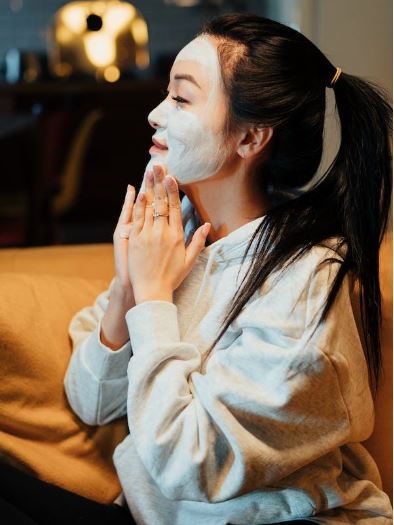Understanding Rosacea: The Most Common Symptoms, Causes & Treatments
Rosacea is a common skin disorder that has no known cure. However, symptoms can be managed with proper care. Foundation Skincare supplements and topical products can help as you learn strategies for living with rosacea.
Contents
What is Rosacea?
Rosacea is a common skin condition that causes redness and a rash on the face. It most commonly affects middle-aged white women, but anyone can develop symptoms of the disorder.
Rosacea Symptoms
Perhaps the most common and widely recognized symptom of rosacea is redness and flushing throughout the face. This tends to worsen over time and may be accompanied by a tingling or burning sensation. While redness is highly prevalent, it is not the only symptom of rosacea. You may also experience any or all of the following:
- Inflammation of the skin, which increases sensitivity. Applying a gentle azelaic acid cream may help reduce some inflammation.
- Visible blood vessels
- Pus-filled bumps or pimples
- Eye irritation (known as ocular rosacea), including redness, dryness, tears, or a gritty feeling. See an eye doctor if you experience these symptoms associated with rosacea.
- Thickening of the skin, especially of the nose
For many people, these symptoms start as mild flushing and progress over time. Eventually, they can become severe enough to interfere with daily life.
Causes of Rosacea
While the exact cause of rosacea is unknown, medical professionals have established that genetic and environmental factors can increase your likelihood of developing the condition. Doctors suspect that the underlying cause of inflammation associated with the disease is exacerbated by exposure to UV light, stress, and certain skin microbes. Additionally, people with highly sensitive skin and a family history of the disorder are more likely to develop rosacea.
Who Is Affected?
Rosacea can affect anyone, regardless of age, sex, or ethnicity. As mentioned earlier, individuals with a family history of rosacea and those with very sensitive skin are more likely to develop symptoms. Some other risk factors include:
- Being over 30
- Smoking
- Being female
- Having skin that burns easily in the sun
Recommended Dermatologist Formulas
Many people with rosacea find relief from topical treatments. However, using the wrong one can irritate already inflamed, irritated, and sensitive skin. That is why choosing dermatologist-approved formulas is essential when shopping for rosacea treatments.
Start by researching what types of products are effective. Educate yourself about topics such as the difference between using niacinamide or azelaic acid for rosacea and the benefits and drawbacks of each.
Lifestyle Changes To Help Limit Rosacea Flares
In addition to topical treatments, you may find that certain lifestyle changes can help reduce the frequency and severity of symptoms. Keep in mind that these are not guaranteed to prevent rosacea from developing, but they may provide some relief. A few suggestions to try include:
- Avoid tobacco products
- Limit exposure to stressful situations
- Restrict sunlight exposure by wearing protective clothing or sunscreen
- Avoid extreme temperatures
- Be aware of specific triggers (such as spicy foods, hot beverages, or strong winds)
If you have been diagnosed with rosacea, you must take steps to protect and nourish your skin. Start by talking with your healthcare provider about your concerns. Then, explore supplements and topical products that help manage symptoms.




